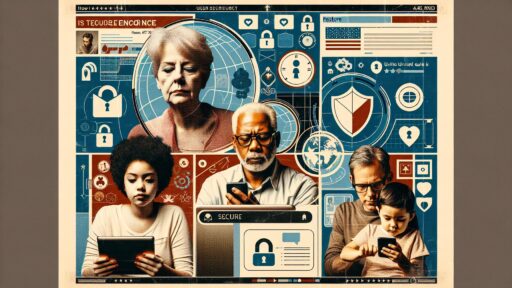In today’s digital age, the ability to sign documents electronically has revolutionized the way businesses operate. The Electronic Signatures in Global and National Commerce (ESIGN) Act, passed by the U.S. Congress in 2000, plays a pivotal role in this transformation. By giving electronic signatures the same legal standing as traditional handwritten ones, the ESIGN Act has streamlined processes and enhanced efficiency across various industries.
Understanding the ESIGN Act is crucial for businesses looking to stay competitive and compliant in an increasingly digital world. This legislation not only simplifies transactions but also ensures security and authenticity, making it a cornerstone of modern business practices. Whether it’s closing deals or onboarding new clients, the ESIGN Act empowers organizations to embrace digital solutions confidently.
What Is the ESIGN Act?
The ESIGN Act, short for the Electronic Signatures in Global and National Commerce Act, became law in the United States in 2000. This landmark legislation grants electronic signatures the same legal authority as handwritten ones, facilitating secure digital transactions.
The ESIGN Act consists of several key provisions. It specifies that contracts, records, and signatures cannot be denied legal standing solely because they’re in electronic form. It enforces that electronic records can satisfy any legal requirements that mandate the provision of written documents. Additionally, it requires that businesses obtain consumer consent before conducting transactions electronically, ensuring transparency and consent.
Several industries have benefitted from the ESIGN Act. The real estate sector uses electronic signatures for property transactions, exemplified by digital agreements for home sales. The banking industry has embraced electronic signatures for loan agreements, reducing paperwork and expediting processes. Healthcare benefits through the digital signing of patient forms, improving efficiency and record-keeping. The legal industry experienced improvements in efficiency with digitally signed contracts and documents.
The impact of the ESIGN Act extends to compliance and security. Organizations must implement measures to verify the identity of signers and ensure the authenticity of electronic records. Failure to comply with these requirements can result in legal complications. The act also outlines specific guidelines for records retention, ensuring electronic documents are accessible and reproducible over time.
The ESIGN Act revolutionizes business transactions, offering a secure, efficient, and legally recognized method for electronic signatures. By understanding and adhering to this act, businesses can streamline operations while maintaining compliance and security.
Key Provisions of the ESIGN Act
The ESIGN Act, enacted in 2000, contains several provisions aimed at ensuring electronic signatures’ legal effectiveness and promoting secure digital transactions.
Validity of Electronic Signatures
The ESIGN Act establishes that electronic signatures have the same legal standing as handwritten ones. It removes barriers to electronic commerce by enabling electronic agreements to be as enforceable as paper ones. Under this provision, businesses can confidently adopt digital transactions, knowing they are legally valid across the U.S. (15 U.S.C. § 7001).
Consumer Consent and Disclosures
According to the ESIGN Act, businesses must obtain consumer consent for electronic transactions before proceeding. Consumers should receive clear disclosures about their rights, the nature of the transaction, and how they can access and retain electronic records. This ensures consumers are aware and informed before agreeing to electronic documents (15 U.S.C. § 7001(c)).
Record Retention
The ESIGN Act mandates that electronic records be retained accurately and accessibly over time. Businesses must ensure that electronic documents remain retrievable in their original format or an accurately reproduced format. This provision helps maintain the integrity and accessibility of electronic records for future reference, ensuring long-term compliance (15 U.S.C. § 7001(d)).
Benefits of the ESIGN Act
The ESIGN Act offers significant advantages in the business world, enhancing transactional processes through its various provisions.
Convenience and Efficiency
The ESIGN Act simplifies business operations by enabling electronic signatures. Processes that traditionally required physical presence and paperwork are now done digitally, reducing time and resources. For example, real estate agents can close deals quickly, while banks can approve loans within minutes. This digital transformation minimizes delays and boosts productivity, allowing businesses to operate more smoothly.
Legal Recognition
Electronic signatures under the ESIGN Act hold the same legal status as handwritten ones. This legal recognition ensures that electronic contracts are enforceable in court. Companies can confidently adopt digital processes, knowing their agreements are legally binding. This boosts trust among consumers and businesses, facilitating smoother and faster interactions without sacrificing security.
Challenges and Limitations
Despite the benefits the ESIGN Act offers, several challenges and limitations arise from its implementation.
Security Concerns
One notable challenge is related to security. Electronic signatures, though legally valid, are vulnerable to cybersecurity threats. Phishing attacks, where attackers simulate legitimate entities, can deceive signers into unwittingly providing sensitive information. Furthermore, the increasing sophistication of cyberattacks means that businesses must constantly update their security protocols. Advanced encryption methods and multifactor authentication are essential to protect electronic signatures and the associated data from unauthorized access.
Accessibility Issues
Another significant limitation centers on accessibility. In remote or less technologically advanced regions, access to necessary technology for electronic signatures can be limited. This digital divide makes it challenging for businesses operating in these areas to fully leverage the ESIGN Act. Additionally, older individuals or those with disabilities may find it difficult to navigate electronic signature platforms. Businesses need to ensure that the technology they use is inclusive, providing options for all users to participate in electronic transactions without undue hardship.
By addressing these challenges, businesses can better utilize the provisions of the ESIGN Act while maintaining security and accessibility.
Real-World Applications
The ESIGN Act has transformed numerous industries by integrating electronic signatures into their daily operations. Here are some specific applications in financial services and healthcare.
Financial Services
Electronic signatures streamline many aspects of financial services. Banks and credit unions can approve loan applications and process account openings swiftly. Secure transaction approvals reduce the need for physical paperwork, which increases efficiency. Investment firms use electronic signatures to quickly authorize trades and update account information. By complying with the ESIGN Act, financial institutions enhance customer satisfaction through faster and more secure services.
Healthcare
In healthcare, electronic signatures facilitate faster processing of patient forms, consent forms, and medical records. Hospitals and clinics can efficiently manage patient data, reducing the administrative burden and allowing healthcare providers to focus more on patient care. Insurance companies expedite claims processing by utilizing electronic signatures for policy agreements and claims forms. The ESIGN Act ensures that these digital operations maintain a high level of security and legality, benefiting both healthcare providers and patients.
Future of the ESIGN Act
The ESIGN Act remains pivotal in the digital age, but advancements and potential amendments shape its future trajectory.
Technological Advancements
Emerging technologies redefine electronic signatures. Blockchain technology, for example, offers unparalleled security by creating immutable records. Cloud-based solutions, like DocuSign and Adobe Sign, enhance accessibility and efficiency for businesses. Additionally, artificial intelligence (AI) automates document verification, reducing errors and increasing trust. These innovations ensure electronic signatures are more secure, reliable, and user-friendly.
Potential Amendments
Legislative adjustments might refine the ESIGN Act to address current challenges. Enhancing security protocols is critical, especially with the rise of cyber threats. Lawmakers may introduce stricter regulations on encryption standards and digital identity verification. Additionally, amendments could include provisions to improve accessibility for individuals with disabilities and those in underserved regions. These changes would ensure the ESIGN Act remains robust and inclusive, adapting to the evolving digital landscape.
Discover the Power of BlueNotary:
Integrate your Business, Title Company, or Law Firm to Satisfy your Customers and Decrease Turnaround
Get a document Notarized/Sign-up
Join the Free Notary Training Facebook Group
Conclusion
The ESIGN Act has fundamentally transformed business operations by legitimizing electronic signatures, making them as enforceable as traditional ones. This legislation has enabled businesses across various sectors to streamline processes, enhance efficiency, and reduce paperwork. By ensuring legal recognition and security, the ESIGN Act fosters trust and facilitates smoother transactions.
However, businesses must address security and accessibility challenges to fully leverage the benefits of electronic signatures. Continuous updates to security protocols and efforts to make technology inclusive are essential. As technology evolves, the ESIGN Act will likely adapt, ensuring it remains relevant and robust in the digital age.
Frequently Asked Questions
What is the ESIGN Act?
The Electronic Signatures in Global and National Commerce (ESIGN) Act is a U.S. law enacted in 2000 that gives electronic signatures the same legal validity as handwritten signatures. This legislation streamlines business processes, ensuring secure and authentic electronic transactions.
Why is the ESIGN Act important for businesses?
The ESIGN Act is crucial as it allows businesses to conduct transactions electronically with legal assurance similar to paper-based agreements. This improves efficiency, reduces paperwork, and ensures security, helping businesses stay competitive and compliant.
What are the key provisions of the ESIGN Act?
Key provisions include the legal recognition of electronic signatures and contracts, the requirement for consumer consent before electronic transactions, and mandates for verifying signer identity and retaining electronic records accurately over time.
How does the ESIGN Act benefit various industries?
Industries like real estate, banking, healthcare, and legal sectors benefit significantly by adopting electronic signatures. These sectors experience enhanced efficiency, reduced paperwork, and quicker transaction times, facilitating better operations and customer interactions.
What security measures should businesses implement for electronic signatures?
Businesses should use advanced encryption methods and multifactor authentication to protect electronic signatures and associated data. Continuous updates to security protocols are necessary to counter cybersecurity threats.
Are there any challenges associated with the ESIGN Act?
Yes, challenges include cybersecurity threats, digital divide issues in remote areas, and accessibility problems for older individuals or those with disabilities. Businesses must address these challenges to fully leverage the ESIGN Act’s benefits.
How does the ESIGN Act impact the financial services sector?
In financial services, electronic signatures streamline loan approvals, account openings, and trade authorizations, enhancing operational efficiency and customer satisfaction.
What role does the ESIGN Act play in healthcare?
In healthcare, electronic signatures expedite patient form processing and medical record handling, allowing providers to focus more on patient care and improve service efficiency.
What is the future of the ESIGN Act?
The future of the ESIGN Act involves potential legislative adjustments for better security and inclusivity. Advancements like blockchain and AI are expected to enhance electronic signature security and automate document verification.
Do electronic signatures have the same legal standing as handwritten signatures under the ESIGN Act?
Yes, the ESIGN Act grants electronic signatures the same legal validity as handwritten ones, ensuring that electronic agreements are enforceable in court just like traditional paper contracts.








